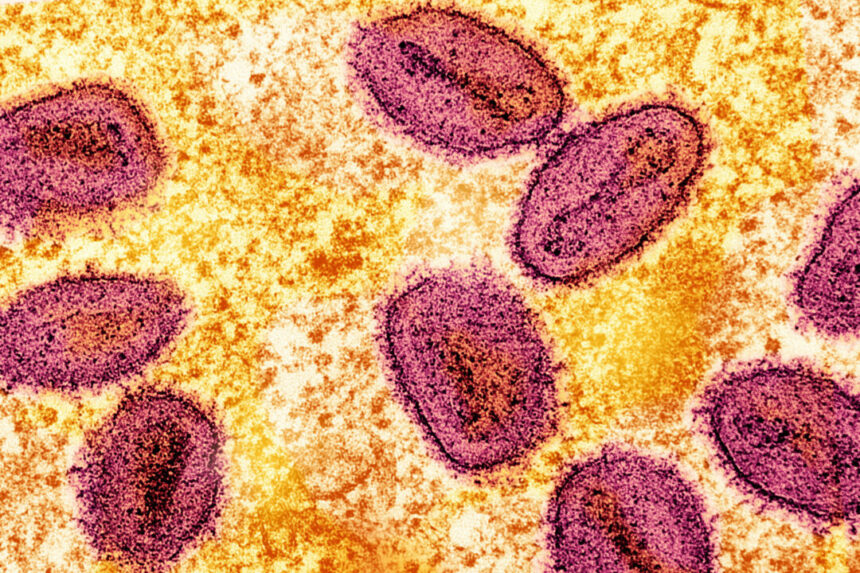The global strategy to stop the transmission of mpox, also known as monkeypox, is being launched by the World Health Organization (WHO). The plan, announced recently, will involve a “strategic vaccination” campaign and will last for six months from September 2024 to February 2024. It is set to receive funding of $135 million.
Efforts under the plan will focus on targeting high-risk individuals such as close contacts of recent cases and healthcare workers to break the transmission chains. The WHO’s strategy includes implementing surveillance, prevention, readiness, and response measures, advancing research, ensuring access to medical countermeasures like vaccines and diagnostic tests, reducing animal-to-human transmission, and engaging communities in outbreak prevention and control.
The emergence of a subvariant of the Clade I mpox strain called Clade II has raised global concerns due to its apparent ease of spread through routine close contact. WHO Director-General Tedros Adhanom Ghebreyesus expressed confidence that the mpox outbreak, originating in the Democratic Republic of the Congo, can be brought under control.
In related developments, the Philippines reported two new cases of the milder Clade II mpox virus strain, bringing the total active cases to three. The country continues to see local transmission, particularly in Metro Manila. The WHO has declared mpox a global public health emergency for the second time in two years due to outbreaks in African countries.
Countries outside Africa, including Sweden and Thailand, have also confirmed mpox cases. However, WHO officials have clarified that mpox will not lead to lockdowns or restrictions on activities, emphasizing the importance of community engagement in controlling the disease.
The article also mentions the situation in the Democratic Republic of the Congo, where over 27,000 suspect mpox cases and more than 1,300 deaths have been reported since January 2023. The disease, which presents with flu-like symptoms and pus-filled lesions, poses a higher risk to vulnerable groups such as children, pregnant women, and individuals with compromised immune systems like those with HIV.
Overall, the WHO’s comprehensive strategy aims to address the mpox outbreak through coordinated efforts with international agencies, national and local partners, civil society, researchers, manufacturers, and Member States. Through these collective actions, the WHO aims to control and ultimately stop the spread of the mpox virus. Can you please rewrite this sentence for me?
Source link





